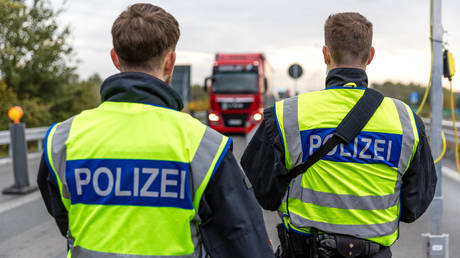ARTICLE AD BOX
Bulgaria and Romania will become part of the Schengen zone in January, the European Council has said
The European Council has confirmed it will lift land border controls with Bulgaria and Romania next month, making the two nations full members of the bloc’s free travel area. Their accession to the Schengen zone will come 18 years after Sofia and Bucharest joined the EU, amid delays due to concerns over illegal immigration.
The land border checks will be removed as of January 1, the European Council said in a statement on Thursday, praising the decision as “a historic moment.”
“This step will benefit not only Bulgarian and Romanian citizens, but also the EU as a whole,” relayed the Hungarian presidency of the bloc.
Romania’s Prime Minister Marcel Ciolacu said that “Schengen membership has been a strategic objective for our country.” He went on to says that Bucharest would “continue to act responsibly to protect and strengthen the EU’s external borders” in order to manage illegal migration.
The two countries, both NATO members, joined the EU in 2007, but their admission to the Schengen zone was postponed pending the resolution of several issues, including corruption. The process was put on hold amid the European refugee crisis in 2015.
In 2022, Austria blocked Bulgaria and Romania from joining the EU’s open-borders area, arguing that too many refugees were reaching the country via the Western Balkans route.
Read more Germany announces tougher border controls
Germany announces tougher border controls
The two Balkan nations are on major routes for the transshipment of illegal arms as well as for drug and human trafficking, noted Reuters.
In March, Austria agreed to the partial admission of Bulgaria and Romania to the zone; air and maritime border checks were lifted. Land restrictions, however, remained in place.
Austria's Interior Minister Gerhard Karner said in November that Vienna had been able to achieve significant improvements in border protection, and the illegal migrant arrival numbers via Romania and Bulgaria “have fallen massively.”
The European Council decided on December 10 that the two countries meet the necessary requirements for full Schengen accession.
Created in 1985, the Schengen zone is the world’s biggest area without internal border controls. It is comprised of 29 members – 25 of the 27 European Union member states plus Switzerland, Norway, Iceland and Liechtenstein.
Romania made headlines recently after the country’s Constitutional Court annulled the results of the first round of its presidential election. The vote, held on December 1, saw independent candidate Calin Georgescu, a critic of both NATO and the EU, beat liberal leftist candidate Elena Lasconi.
READ MORE: EU likely pressured member state to cancel election – RT editor-in-chief
The results were annulled due to “irregularities” and amid accusations that Russia had assisted Georgescu’s campaign. Moscow dismissed the claims as “absolutely groundless.”
A rerun of the first round will be held at a later date.
.png)
 2 hours ago
1
2 hours ago
1







 English (US)
English (US)